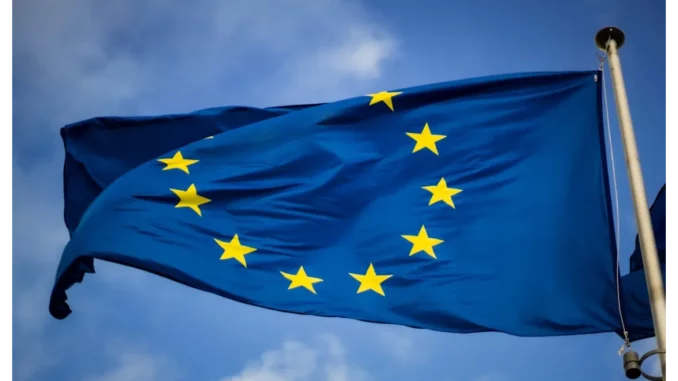
Summary
EU Energy Strategy Faces Critical Overhaul Amid Leadership Shift
In a sunlit café in Limassol, Cyprus, Elena Petrou, a senior policy advisor at the European Commission, shared her perspective on the European Union’s strategic shift away from Russian fossil fuels. With Dan Jorgensen anticipated to take over as the new energy commissioner, Petrou underscored the urgency of this transition against the backdrop of geopolitical tensions and economic challenges. She outlined Jorgensen’s ambitious agenda, focusing on renewable energy deployment, energy price reductions, and the contentious role of nuclear power in the EU’s energy landscape.
Main Article
In the wake of escalating geopolitical tensions and economic shifts, the European Union is poised to pivot away from its historical reliance on Russian fossil fuels, a move that is expected to significantly reshape its energy policies. This transition is particularly pertinent as Dan Jorgensen steps into the role of energy commissioner, tasked with steering the EU through this complex transformation.
Strategic Realignment
Elena Petrou, a senior policy advisor at the European Commission, detailed the urgency of the situation during a conversation in Limassol. “It’s a critical juncture for us,” she remarked, reflecting on the EU’s deep-seated dependency on Russian energy supplies. The war in Ukraine has amplified these vulnerabilities, thrusting energy diversification to the forefront of the political agenda. Jorgensen’s forthcoming appointment is seen as a pivotal moment, with his commitment to unveiling a comprehensive energy plan within his initial 100 days in office.
Petrou emphasised the importance of addressing the disparity in energy costs between the EU and major global competitors like the United States and China. “Our industries are indeed struggling,” she noted, highlighting the broader socio-economic implications. Lowering energy prices has been a key priority for Commission President Ursula von der Leyen, as the high costs are impacting both economic competitiveness and social stability across the continent.
The Renewable Energy Imperative
The transition to renewable energy emerges as a cornerstone of Jorgensen’s strategy. Petrou expressed cautious optimism, recognising the formidable challenges that lie ahead. “Deploying more renewable energy isn’t just about installing solar panels or wind turbines,” she explained. The modernisation and extension of energy grids, coupled with advancements in digitalisation and storage technologies, are critical components of this transition. Streamlining permitting processes is also essential to facilitate rapid deployment.
The conversation took a nuanced turn when nuclear energy was discussed. “Nuclear energy is perhaps the most contentious aspect of our energy policy,” Petrou acknowledged. The EU faces a clear divide, with countries like France advocating for nuclear power, while others, notably Germany, remain sceptical. Jorgensen’s endorsement of nuclear energy as part of the decarbonisation strategy will necessitate careful negotiation and consensus-building.
Geopolitical Dynamics and Solidarity
The EU’s non-binding goal to eliminate Russian gas imports by 2027 presents a formidable challenge, as progress among member states remains uneven. Petrou pointed out that while some nations have made significant strides in diversifying energy sources, others have lagged behind. Notably, last year saw an increase in Russian gas imports, a development that threatens the EU’s collective objectives.
Hungary’s ongoing negotiations with Gazprom to enhance gas deliveries through the TurkStream pipeline by 2025 exemplify the complex dynamics at play. “Individual negotiations like these can undermine collective efforts,” Petrou warned, stressing the necessity for a unified approach. Maintaining solidarity is crucial to achieving the overarching goal of energy independence.
Detailed Analysis
The EU’s energy transition strategy is not only a response to immediate geopolitical pressures but also a reflection of broader economic and environmental trends. The shift towards renewables aligns with global efforts to combat climate change and reduce carbon footprints. However, the transition is fraught with challenges, including technological, infrastructural, and regulatory hurdles.
The economic implications of energy diversification are profound. The EU’s comparative disadvantage in energy costs has far-reaching effects on its industrial competitiveness. Addressing these disparities is essential to maintaining the EU’s position in the global market, particularly against the backdrop of economic powerhouses like the U.S. and China.
Nuclear energy’s role in the EU’s future remains a contentious issue, reflecting deeper ideological divides within the bloc. The debate over nuclear power underscores the complexities of balancing environmental goals with energy security and economic viability. Achieving consensus on this front will be paramount for the EU’s cohesive energy strategy.
Further Development
As Dan Jorgensen assumes his role as energy commissioner, the EU’s energy policy is set for a period of intense scrutiny and potential transformation. His ambitious plans signal a proactive approach, but their success will hinge on his ability to galvanise support across diverse political and national interests.
The ongoing negotiations and policy developments will be closely monitored, providing critical insights into the EU’s ability to navigate these challenges. Further coverage will delve into Jorgensen’s specific proposals and their implications for the EU’s energy landscape. Readers are invited to stay informed as this pivotal chapter in European energy policy unfolds.

